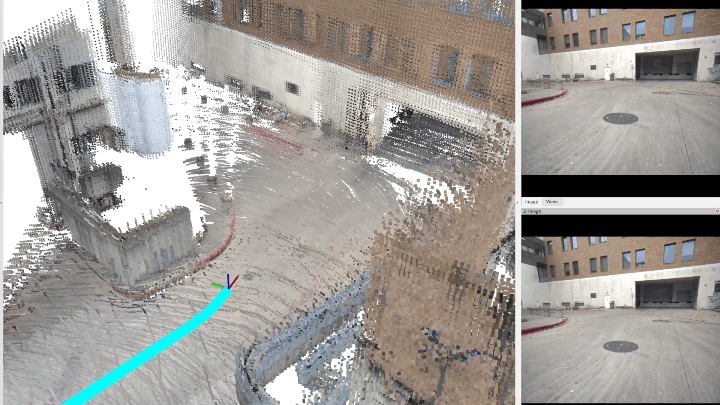Towards Robust Robot 3D Perception in Urban Environments: The UT Campus Object Dataset
We introduce the UT Campus Object Dataset (CODa), a mobile robot egocentric perception dataset collected on the University of Texas Austin Campus. Our dataset contains 8.5 hours of multimodal sensor data: synchronized 3D point clouds and stereo RGB video from a 128-channel 3D LiDAR and two 1.25MP RGB cameras at 10 fps; RGB-D videos from an additional 0.5MP sensor at 7 fps, and a 9-DOF IMU sensor at 40 Hz. We provide 58 minutes of ground-truth annotations containing 1.3 million 3D bounding boxes with instance IDs for 53 semantic classes, 5000 frames of 3D semantic annotations for urban terrain, and pseudo-ground truth localization. We repeatedly traverse identical geographic locations for a wide range of indoor and outdoor areas, weather conditions, and times of the day. Using CODa, we empirically demonstrate that: 1) 3D object detection performance in urban settings is significantly higher when trained using CODa compared to existing datasets even when employing state-of-the-art domain adaptation approaches, 2) sensor-specific fine-tuning improves 3D object detection accuracy and 3) pretraining on CODa improves cross-dataset 3D object detection performance in urban settings compared to pretraining on AV datasets. Using our dataset and annotations, we release benchmarks for 3D object detection and 3D semantic segmentation using established metrics. In the future, the CODa benchmark will include additional tasks like unsupervised object discovery and re-identification. We publicly release CODa on the Texas Data Repository, pre-trained models, dataset development package, and interactive dataset viewer on our website at https://amrl.cs.utexas.edu/coda. We expect CODa to be a valuable dataset for research in egocentric 3D perception and planning for autonomous navigation in urban environments.
PDF Abstract








 KITTI
KITTI
 nuScenes
nuScenes
 TUM RGB-D
TUM RGB-D
 Argoverse 2
Argoverse 2
 NCLT
NCLT
 ONCE
ONCE
 RELLIS-3D
RELLIS-3D